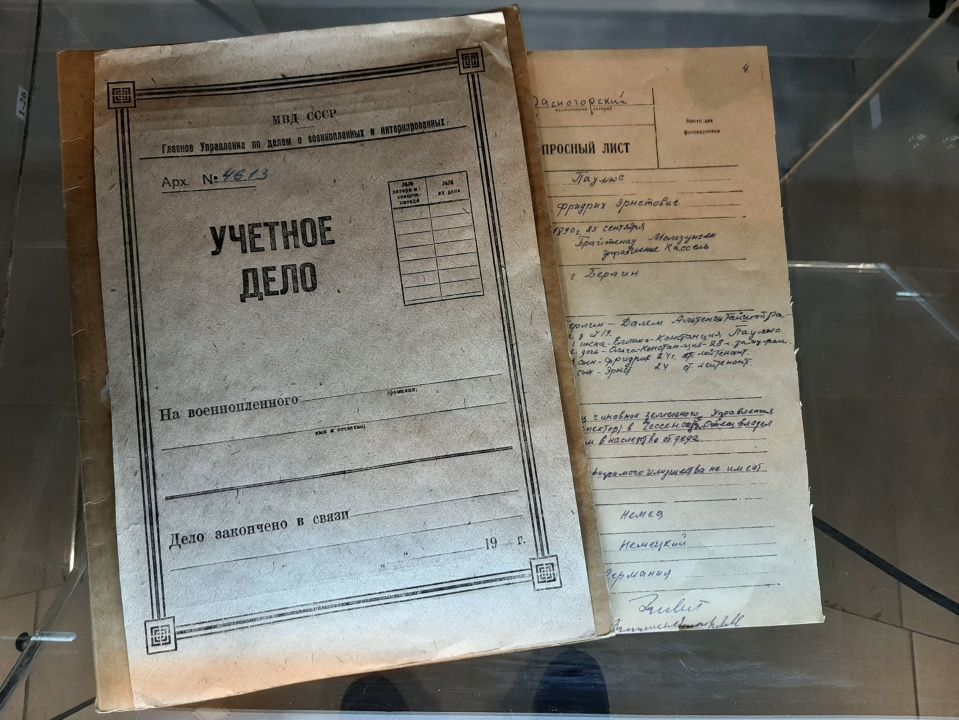Officer's gloves from the 1940s, presented by Friedrich Paulus to the pilot transporting the Field Marshal to Nuremberg. (Victory Museum, Krasnogorsk)
After appearing at the Nuremberg Trials, the field marshal stayed in Thuringia for a month and a half, where he met with relatives. At the end of March 1946, Paulus was brought back to Moscow, but was not put on trial – Stalin forbade it. The general became the supreme leader's “personal prisoner”: he lived in a summer house near Moscow, studied the classics of Marxism-Leninism, received letters from relatives, and medical treatment in Yalta. He had his physician, cook, and adjutant. But all requests for permission to go home, or at least to visit the grave of his wife, who passed away in 1949, were politely refused.
One morning in 1951, Paulus was found unconscious but was saved. He fell into a severe depression, did not talk to anyone, refused to get out of bed or eat. Stalin decided to release the field marshal but did not specify a date for the return to his homeland.
On 24 October 1953, only after Stalin's death, Paulus left for Berlin, assuring GDR State Council leader Walter Ulbricht that he would only live in East Germany. On the day of his departure, the Pravda newspaper published a statement by Paulus, where he spoke about the need for the peaceful co-existence of states with different systems, about a future united Germany. He also added that he came to the Soviet Union as an enemy, but was leaving the country as a friend.
During his time in the GDR, Paulus was provided with a guarded villa in a high-end district of Dresden, a car, an adjutant, and a personal gun. He taught future officers and delivered papers on the Battle of Stalingrad. Paulus constantly proved his loyalty to the socialist system and criticised the West German leadership. And the East German authorities did not mind that he signed himself as “General Field Marshal of the former German Army.”
Friedrich Paulus passed away on 1 February 1957, on the eve of the 14th anniversary of the defeat of his army at Stalingrad. According to some sources, the cause of his death was amyotrophic lateral sclerosis; others said it was malignant tumours.
The urn with field marshal's ashes was buried near the grave of his wife in Baden-Baden.





























